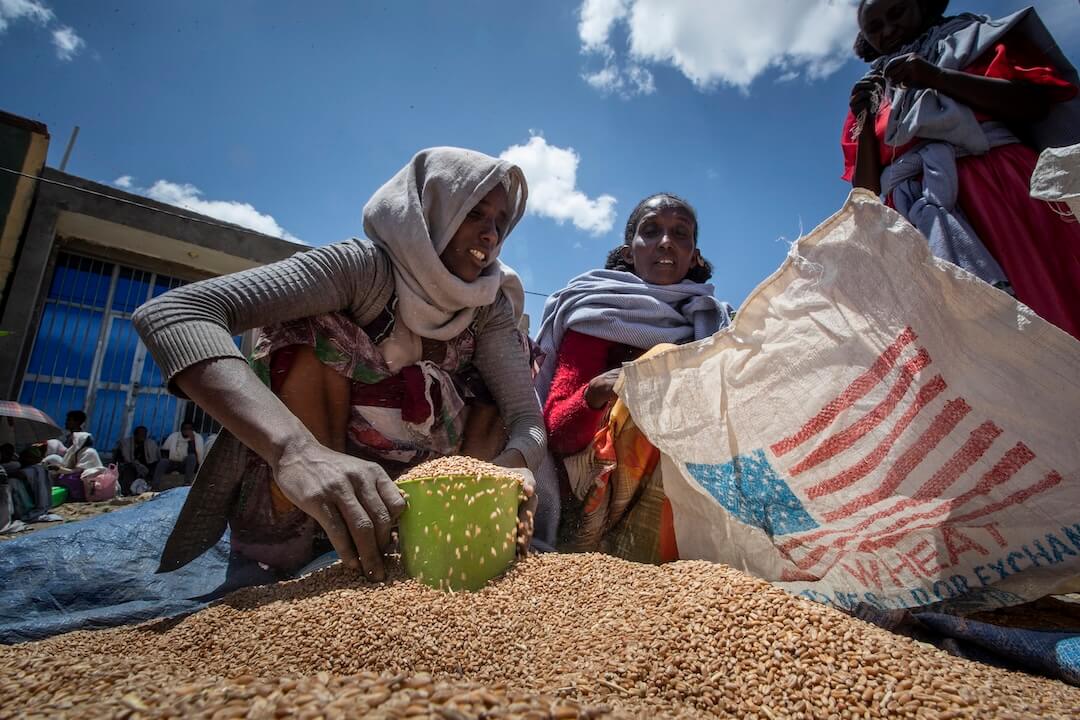The life of a journalist covering conflict and that of someone in the military aren’t that different, said Al Jazeera America’s Josh Rushing in a phone interview.
“My family knows that I have a backpack ready to go,” he said. “I’m gone all the time. Where am I going? Really dangerous places, so there’s that same fear.”
Journalists and people in the military even have similar motivations, he said.
“I served in the Marines because I believed I was serving a greater cause. I’m a journalist because I believe it’s serving a greater cause.”
Part of that greater cause for him is helping people understand what’s happening in a place he knows well. On Friday night, Al Jazeera America will run “Flashpoint: Fighting ISIL,” at 8 p.m. Eastern, featuring reporting from the time that Rushing spent along the Iraq and Syria border in August.
From the press release:
“Flashpoint: Fighting ISIL” will also include a look at the plight of women in towns captured by ISIL and features exclusive reporting from Al Jazeera correspondent Josh Rushing. This September, Rushing completed a month-long reporting trip in northern Iraq during which he traveled the 600-mile frontline between ISIL and Kurdistan, and witnessed the coalition of militias fighting the terrorist group.
You can find out more about Rushing during his time in the military, his unexpected transition into journalism and the reception to that change from this 2006 Mother Jones piece by Daniel Schulman. The oversimplified version is: after discovering he was part of a documentary that showed him working with Al Jazeera (as part of his job with the Marines,) he eventually got pushback from the top, left the military and went on to help launch Al Jazeera America. Today, Rushing is now the host of the Al Jazeera series Fault Lines, and in August, he headed back to Iraq to report on the Islamic State group.
“I know Iraq, I know Iraq going back 10 years,” he said. “I know it from the military perspective and I know it from the journalist’s perspective. I know how to survive in those conditions with people on the front lines.”
With Friday night’s episode, he explores the front line that the Islamic State group is now pushing, and the people who are pushing back, including women with the PKK, a group of Kurdish fighters on the U.S. terrorist list. While in Iraq, Rushing spent time with them and asked one woman if there was anything he’d missed.
“She said, ‘the Islamic State is an existential threat to women, not just women here, to women everywhere.'”
Rushing plans to devote a longer episode of Flashpoint to that story in the future, including three other women he met while in Iraq, a mother at a refugee camp, a doctor treating women who was a refugee herself, and a woman’s rights advocate. The episode will focus on the threat the Islamic State group poses to women.
While in Iraq, Rushing also met with and watched Yazidi families come down from Mount Sinjar as they crossed the Tigris River into Syria.
“I had already been where they were heading,” he said. “I think it’s not an overstatement to say the worst was yet to come.”
Rushing has seen Iraq first as a Marine and now as a journalist. It’s a dangerous job, but even more so for local journalists working in the well-established network of stringers.
“The risk that the local journalists take far exceeds what the American or Western journalists take,” he said. “And it rarely is as publicized when something goes wrong.”
He has also seen major news organizations pull out of Syria, but still willing to use work from freelancers take the risk without security backup or ransom insurance.
“It seems to me if you’re talking about media and journalism on a meta level, this is a super important discussion, balancing the risk of enabling guys to take risks, not paying security, etc., against the risk of Syria being a black hole.”
On Thursday, Agence France-Presse reported they’d no longer take work from “freelance journalists who travel to places where we ourselves would not venture.”
“Flashpoint: Fighting ISIL,” airs Friday night at 8 p.m. Eastern on Al Jazeera America, with another broadcast at 11 p.m. Eastern. Rushing looks at the people behind the Islamic State group and how the U.S. is trying to fight them.
He’s still trying to explain one group to another.
“When I speak to military audiences, I often tell them, every journalist that I see in a war zone has just as strong of a conviction as you do,” he said. “The biggest difference is you’re not supposed to ask tough questions in the military. You’re supposed to say ‘yes, sir,’ and move along.”







